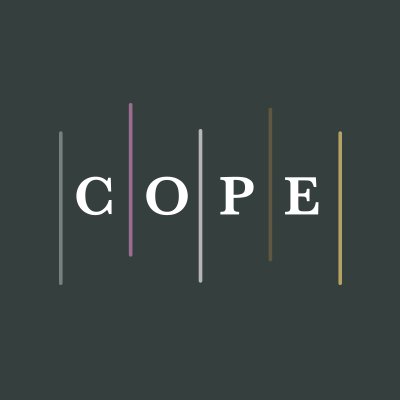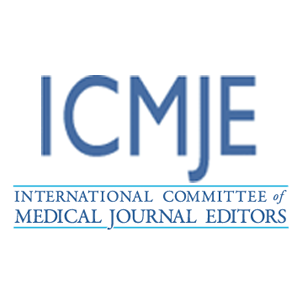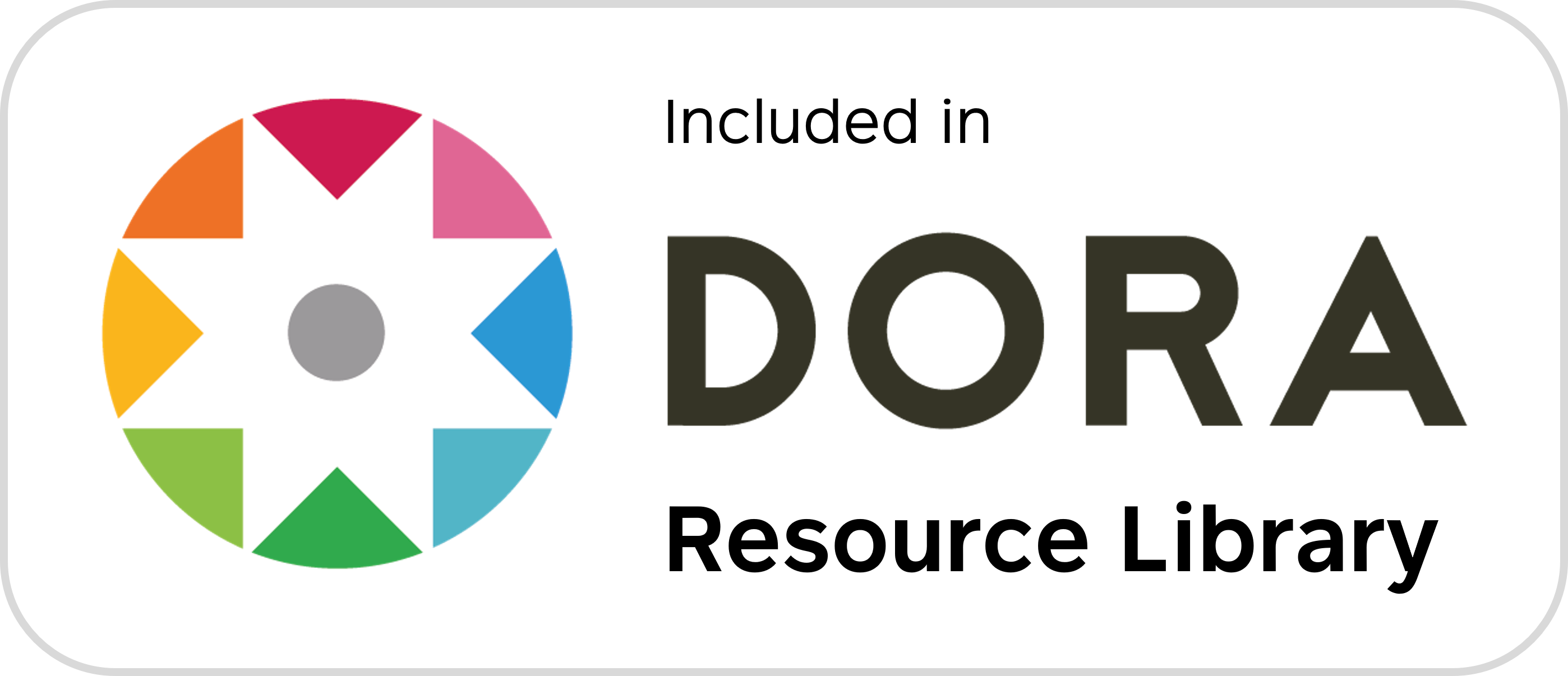Publishing Ethics
 Inovasi Analisis Data Inovasi Analisis Data |
Publication Ethics and Malpractice Statement
Our Enduring Commitment to the Highest Standards of Academic Integrity, Transparency, and Research Excellence
 |
 |
 |
1. Preamble: Our Foundational Commitment
Inovasi Analisis Data is fundamentally dedicated to upholding the most rigorous standards of publication ethics and academic integrity. This comprehensive statement is meticulously constructed upon the foundational principles and exemplary core practices established by the esteemed Committee on Publication Ethics (COPE). Furthermore, we strictly adhere to the authoritative recommendations set forth by the International Committee of Medical Journal Editors (ICMJE) for the conduct, reporting, editing, and publication of scholarly work. In alignment with our commitment to open science, we also fully embrace and implement the best practices for transparent open access publishing as delineated by the Directory of Open Access Journals (DOAJ). Our dedicated editorial team meticulously implements and enforces a rigorous double-blind peer-review process, which is complemented by stringent ethical policies, all designed to consistently guarantee the scientific integrity, authenticity, reliability, and enduring quality of every scholarly contribution published herein. This exhaustive document explicitly delineates the ethical responsibilities and conduct expected from all integral stakeholders within our publication ecosystem: the authors who contribute their valuable research, the expert peer reviewers who critically appraise submissions, the diligent editors who guide the process, and the publisher who facilitates dissemination.
2. Ethical Oversight and Research Compliance
2.1. Research Involving Human & Animal Subjects
All manuscripts reporting research that involves human participants, utilizes human data, or incorporates animal subjects must include an explicit and unambiguous statement within the "Materials and Methods" section. This statement is mandatory and must clearly identify the specific institutional and/or national research ethics committee (e.g., Institutional Review Board - IRB, or Ethics Committee - EC) that granted approval for the study, along with the corresponding approval number or unique identifier code. For all human subjects research, authors are stringently required to explicitly confirm that the entire study was meticulously conducted in full accordance with the ethical principles outlined in the latest version of the Declaration of Helsinki (WMA, 2013) and all relevant national, regional, and international ethical regulations and guidelines. Written informed consent for participation in the study and for the potential publication of data must be unequivocally obtained from all human participants. For research involving vulnerable populations (e.g., minors, individuals with diminished capacity), comprehensive written informed consent from legally authorized representatives or guardians is strictly mandatory. The journal reserves the absolute and unequivocal right to request and thoroughly verify all original documentation pertaining to ethical approval and participant consent at any stage of the peer-review or publication process. Manuscripts failing to provide verifiable evidence of appropriate ethical oversight, or demonstrating a breach of ethical conduct, will be immediately and unconditionally rejected without further consideration.
2.2. Clinical Trial Registration & Adherence to Reporting Guidelines
In strict accordance with the prevailing recommendations set forth by the International Committee of Medical Journal Editors (ICMJE), all clinical trials must be prospectively registered in a publicly accessible, internationally recognized registry approved by the World Health Organization (WHO) or ICMJE (e.g., ClinicalTrials.gov, EU Clinical Trials Register, ISRCTN) prior to the recruitment of the very first participant. The unique trial registration number and the date of registration must be prominently provided in both the abstract and the main body of the manuscript. Authors are under a strict obligation to meticulously adhere to the appropriate and widely accepted reporting guidelines specific to their study design. This includes, but is not limited to: CONSORT for randomized controlled trials, STROBE for observational studies, STARD for diagnostic accuracy studies, and PRISMA for systematic reviews and meta-analyses. We strongly endorse the comprehensive and invaluable guidelines provided by the EQUATOR Network, and authors are explicitly required to submit the relevant completed checklist and a clear flow diagram as supplementary files alongside their main submission to ensure transparency and reproducibility.
2.3. Research Involving Biological Materials, Data & AI
For studies involving biological materials such as cell lines, laboratory animals, microorganisms, genetic resources, or human biospecimens, authors must confirm compliance with all relevant national and international regulations, guidelines, and conventions (e.g., Nagoya Protocol). Proper documentation of the source, handling protocols, and appropriate permits or licenses must be readily available for review upon request. For studies utilizing publicly available datasets, proper attribution to the original source and strict compliance with dataset-specific usage agreements and licensing terms are mandatory. Authors utilizing Artificial Intelligence (AI) tools, large language models (LLMs), or generative AI in any part of their research or manuscript preparation (e.g., for generating text, images, or analyzing data) must disclose this usage in detail within the "Materials and Methods" section or a dedicated "AI Disclosure" section. This disclosure must specify which tools were used, how they were used, and for what purpose, ensuring transparency regarding AI's role in the research process. The journal actively supports and promotes the FAIR Principles (Findable, Accessible, Interoperable, and Reusable) for all research data management.
3. Roles and Ethical Obligations of Key Stakeholders
| Role | Key Responsibilities | Ethical Standards and Best Practices |
|---|---|---|
| Editors |
|
Editors are mandated to evaluate manuscripts solely on their intellectual content, entirely free from any form of bias related to authors' personal attributes (e.g., race, gender, nationality, institutional affiliation, or political philosophy). They must proactively declare and meticulously manage any potential conflicts of interest, recusing themselves from involvement where such conflicts exist. Strict adherence to COPE's comprehensive flowcharts is mandatory for addressing all suspected cases of research or publication misconduct. The anonymity of peer reviewers is vigilantly preserved unless the journal explicitly operates an open peer-review system. Editors are responsible for fostering a constructive and respectful review environment. |
| Reviewers |
|
Reviewers are expressly expected to conduct their evaluations with utmost objectivity and impartiality, entirely refraining from any form of personal criticism of the authors. Their comments should be articulated clearly, be well-substantiated with arguments, and include relevant references where appropriate. Reviewers should meticulously identify any significant published work that has not been adequately cited by the authors. Any information or ideas obtained through the privileged process of peer review must be held in strict confidence and unequivocally not be utilized for a reviewer's personal research, financial gain, or any other advantage without the explicit written consent of the authors. Reviewers must decline to review manuscripts where demonstrable conflicts of interest exist, stemming from competitive, collaborative, or other relationships with authors, companies, or institutions associated with the research. |
| Authors |
|
Authors bear the ultimate responsibility for presenting an honest and accurate account of their research work performed and an objective discussion of its significance. Underlying data must be represented accurately and without manipulation in the paper. The manuscript should contain sufficient detail and references to enable suitably qualified researchers to replicate the work. Fraudulent statements, data fabrication, falsification, plagiarism (including self-plagiarism in any form), and simultaneous submission of the same manuscript to multiple journals are unequivocally severe breaches of ethical conduct and are strictly prohibited. Authorship must be stringently limited to individuals who have made a substantial intellectual contribution to the conception, design, execution, or interpretation of the reported study. All sources of funding must be clearly declared. Authors must also disclose any potential hazards associated with their research. |
4. Handling Publication Misconduct and Sanctions
4.1. Definition of Research and Publication Misconduct
Publication and research misconduct encompasses, but is not limited to, the following severe breaches of academic integrity: **Plagiarism** (presenting another's work, ideas, or words as one's own without proper attribution, including self-plagiarism); **Fabrication** (making up data, results, or methods and recording or reporting them); **Falsification** (manipulating research materials, equipment, or processes, or changing or omitting data or results such that the research is not accurately represented in the research record); **Inappropriate Authorship** (including "ghost" or "gift" authorship, or not listing all those who qualify for authorship); **Duplicate Submission** (submitting the same manuscript to more than one journal concurrently); **Redundant Publication** (publishing papers that substantially overlap without proper cross-referencing and justification); and **Undeclared Conflicts of Interest** that could unduly influence the research or its reporting.
4.2. Investigation Procedures
Any and all allegations of publication or research misconduct, whether related to submitted manuscripts or already published articles, will be investigated meticulously, thoroughly, and with the utmost confidentiality. Our investigation process strictly adheres to the robust guidelines and comprehensive flowcharts provided by the Committee on Publication Ethics (COPE). This comprehensive process may involve a range of actions: requesting original raw data from authors, contacting relevant institutional review boards or ethics committees, consulting with independent statistical reviewers, engaging external experts, and reaching out to authors' institutions. Authors are under a strict obligation to cooperate fully and transparently with any such investigation, providing all requested information and clarifications promptly and completely. During an active investigation, a submitted manuscript may be temporarily paused from the review process, or if already published, an "Expression of Concern" notice may be publicly affixed to the article until a definitive resolution is reached and the investigation is concluded.
4.3. Sanctions and Corrective Measures
Should conclusive evidence of misconduct be established following a thorough and impartial investigation, the journal will decisively implement appropriate sanctions and rigorous corrective actions. These measures are comprehensive and proportionate to the severity of the misconduct, and may include, but are not limited to, the following:
- Immediate and permanent rejection of the implicated manuscript, or all manuscripts from the author(s) under review.
- Issuance of a formal **retraction** of a published article. The retraction notice will be explicitly detailed, clearly stating the reasons for the action, prominently linked to the original article, and indexed appropriately.
- Imposition of a **formal embargo** or ban on the responsible author(s) from submitting any future manuscripts to *Inovasi Analisis Data* for a specified period (e.g., 1-5 years, or indefinitely, depending on the severity).
- Formal notification of the findings to the authors' affiliated institution(s), their head(s) of department, and any relevant funding agency, respecting all privacy regulations.
- Publication of a **public notice of misconduct** (e.g., editorial expressing concern, statement of duplicate publication) where deemed necessary to maintain academic record integrity and inform the scientific community.
- Recommendation for removal of the author(s) from any editorial board or review panel roles within the journal.
It is imperative to note that all retractions are considered permanent records of the scientific literature. They will be clearly and widely communicated to all major indexing and abstracting services (e.g., Scopus, DOAJ, Google Scholar) to ensure the integrity and accuracy of the scholarly record. The journal maintains a comprehensive internal record of all detected misconduct cases and actively coordinates with other journals, publishers, and institutions when patterns of repeat misconduct are identified, in adherence to COPE guidelines.
Inovasi Analisis Data © 2024 by Agus Dwianto is licensed under CC BY-SA 4.0.
Mail: admin@analysisdata.co.id
Address: Jl. Mulawarman Selatan Raya I, Kel. Jabungan, Banyumanik, Semarang, Indonesia. (50266)






